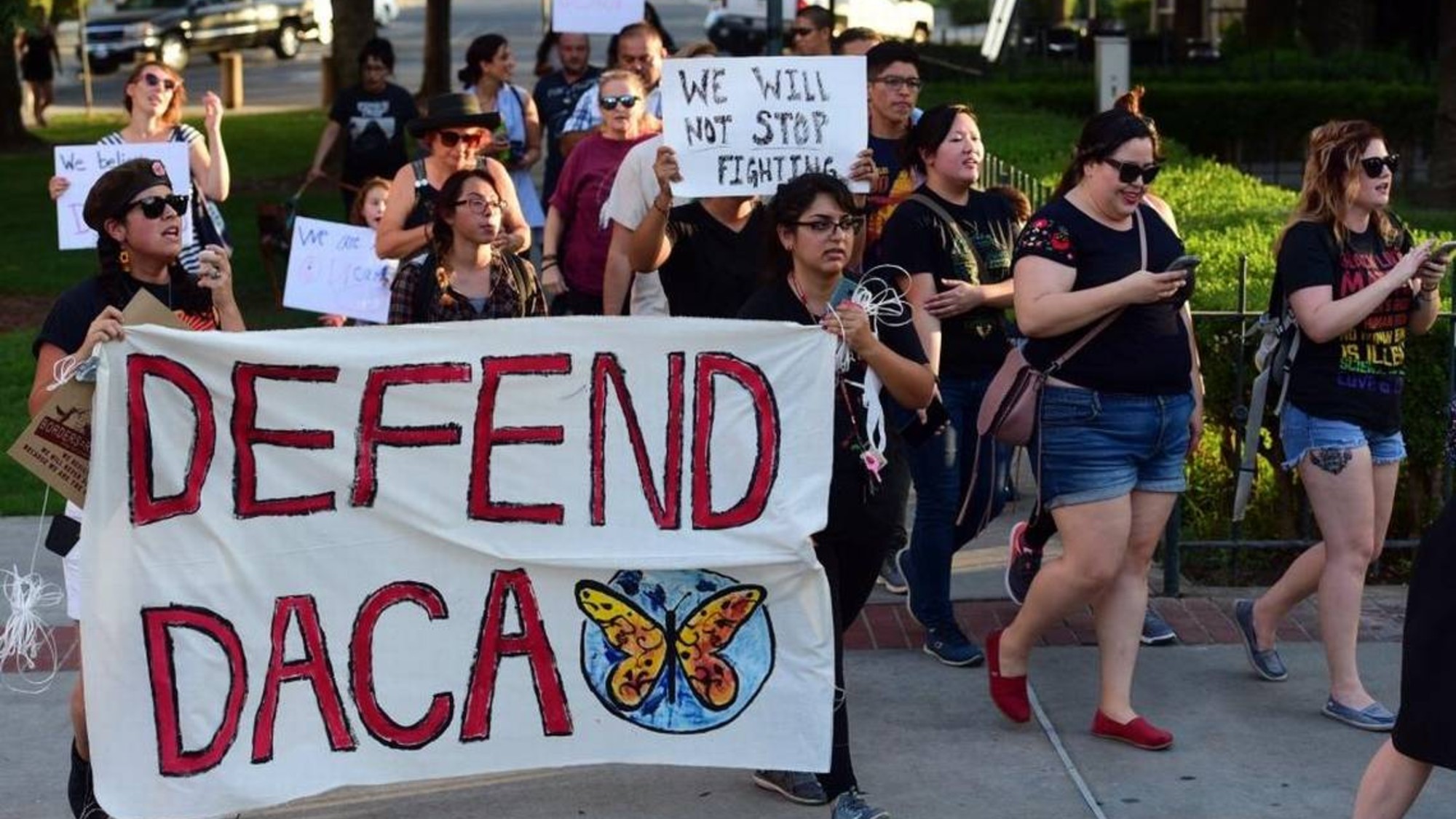'Discriminating against DACA students'
Opinion, comment and editorials of the day


A free daily email with the biggest news stories of the day – and the best features from TheWeek.com
You are now subscribed
Your newsletter sign-up was successful
'Discriminating against DACA students'
The Wall Street Journal editorial board
The Education Department is "harassing colleges that provide scholarships to young people who came to the country illegally as children," says The Wall Street Journal editorial board. Many "Dreamers have no memory of or ties to their home countries," and "most couldn't afford tuition at these schools without scholarships." Denying "Dreamers an opportunity to learn and advance in society doesn't help anyone." This is "one more way of punishing Dreamers because their parents crossed illegally into the U.S. decades ago."
The Week
Escape your echo chamber. Get the facts behind the news, plus analysis from multiple perspectives.

Sign up for The Week's Free Newsletters
From our morning news briefing to a weekly Good News Newsletter, get the best of The Week delivered directly to your inbox.
From our morning news briefing to a weekly Good News Newsletter, get the best of The Week delivered directly to your inbox.
'The conviction of Colombia's ex-president is a sign of hope amid autocracy's rise'
Maria McFarland Sánchez-Moreno at The Guardian
Former Colombian President Álvaro Uribe was "convicted of bribing a witness who had linked him to the paramilitaries," and the "fact that it has happened at all is a striking development that would have seemed almost inconceivable a decade or so ago," says Maria McFarland Sánchez-Moreno. In a "time of rising autocracy and abuse, including in the U.S., it also offers reasons for hope." No "matter how much power leaders may amass, they are not ultimately above the law."
'The unspoken etiquette of mourning on social media'
Alessandra Schade at Time
A free daily email with the biggest news stories of the day – and the best features from TheWeek.com
As "social media reshapes how we share — and grieve — there are many for whom public mourning still feels gauche, even offensive," says Alessandra Schade. Grieving online "offers catharsis and connection. Engaging with a deceased person's profile can help sustain a bond beyond the grave." But "every post, photo, or story risks transgressing invisible social landmines of what is and isn't acceptable." Conversations "around death are returning to the public square."
'How do you destroy a country's reputation? Just ask Benjamin Netanyahu.'
Alon Pinkas at The New Republic
Israeli Prime Minister Benjamin Netanyahu has "achieved something on a scale unparalleled in the annals of modern democracies: He has devalued a country," says Alon Pinkas. It is "not just a tarnished image or reputational damages that are reversible but a fundamental case of brand self-destruction." A "prosperous democracy, labeled as a 'start-up nation,' a hub for innovative, creative, cutting-edge technologies, synonymous with scientific and medical excellence," has "become an international outcast, a country regarded as rogue."
Justin Klawans has worked as a staff writer at The Week since 2022. He began his career covering local news before joining Newsweek as a breaking news reporter, where he wrote about politics, national and global affairs, business, crime, sports, film, television and other news. Justin has also freelanced for outlets including Collider and United Press International.
-
 Should the EU and UK join Trump’s board of peace?
Should the EU and UK join Trump’s board of peace?Today's Big Question After rushing to praise the initiative European leaders are now alarmed
-
 ‘Poor time management isn’t just an inconvenience’
‘Poor time management isn’t just an inconvenience’Instant Opinion Opinion, comment and editorials of the day
-
 ‘The forces he united still shape the Democratic Party’
‘The forces he united still shape the Democratic Party’Instant Opinion Opinion, comment and editorials of the day
-
 ICE eyes new targets post-Minnesota retreat
ICE eyes new targets post-Minnesota retreatIn the Spotlight Several cities are reportedly on ICE’s list for immigration crackdowns
-
 ‘Those rights don’t exist to protect criminals’
‘Those rights don’t exist to protect criminals’Instant Opinion Opinion, comment and editorials of the day
-
 ‘This is something that happens all too often’
‘This is something that happens all too often’Instant Opinion Opinion, comment and editorials of the day
-
 ‘The mark’s significance is psychological, if that’
‘The mark’s significance is psychological, if that’Instant Opinion Opinion, comment and editorials of the day
-
 How did ‘wine moms’ become the face of anti-ICE protests?
How did ‘wine moms’ become the face of anti-ICE protests?Today’s Big Question Women lead the resistance to Trump’s deportations



